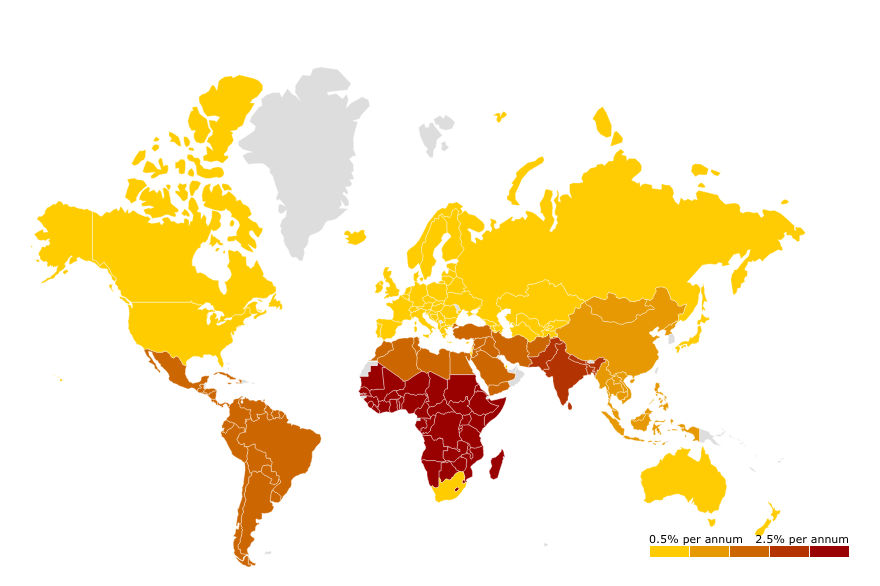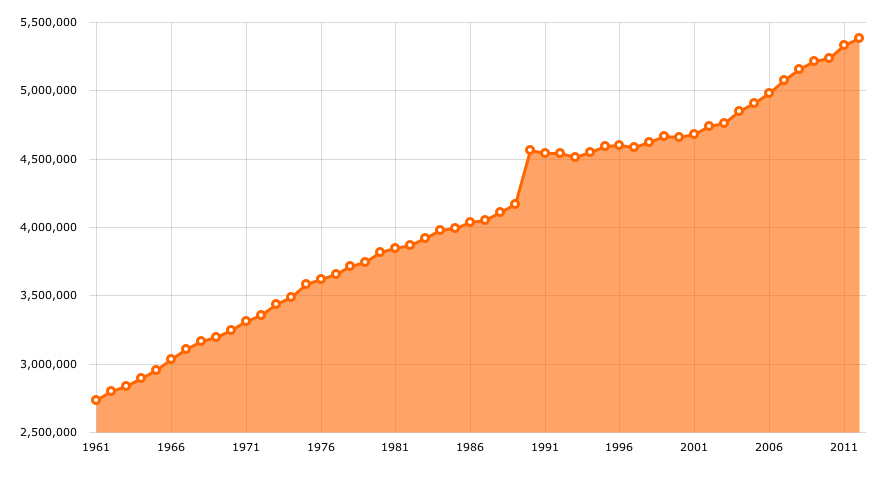The global food production system is set to face immense challenges in the coming decades. With massive population growth combined with the emergence of a global middle class, the need for agricultural goods is accelerating at an unprecedented level. The global demand for food around the world is expected to see a 70% increase by 2050. This will require even more intensive energy, water and fertilizer inputs in agriculture to sustain and increase yields on our limited supply of arable land.
Demand Growth for Agricultural Products by Region (2007-2050)

Source: FAO (2016)
Today agriculture contributes 25%-30% of global greenhouse gas emissions and 70% of all water withdrawals annually – this is double the amount 50 years ago.The key risks provoked by our current agricultural system ranges from climate change, water scarcity and the degradation of fertile land. Failing to improve the world’s food production and distribution system could contribute to a vicious cycle of environmental damage. If this occurs arable land availability will decrease at a faster pace, an issue exacerbated by the soaring demand for food worldwide (which is forecast to increase 60-70% by 2050 from 2007 levels).
Growth of World Agricultural Greenhouse Gas Emissions
 Source: FAO (2016)
Source: FAO (2016)
According to the University of Oxford and the Morgan Stanley Institute for Sustainable Investing, these factors will lead to frequent and dramatic rises in global food prices. This already occurred in 2008 when the World Bank Food Price Index rose by 60% (a scenario that is now considered indicative global food markets in the future).
Innovations in finance, production and distribution methods are needed at the local level for the world’s largest commodity exporters to build and strengthen a sustainable global food supply. Encouraging evidence from India, China and Brazil strongly suggest that investment in agriculture across developing regions of the world is beneficial for economic growth, social prosperity and poverty reduction. This also increases competitiveness and proliferates the use of effective and sustainable agricultural practices across the entire global food industry.
The great challenge will be to transform the global food system into one that meets the nutritional needs of all in a sustainable manner. Given the scale, scope and complexity of the world’s entire food system, one of the most important strategies is to first build a socially and environmentally responsible supply chain in agriculture. Current levels of food production are in fact sufficient in meeting the world’s nutritional needs, all we need is the equitable distribution of knowledge and resources. This includes the development and production of sustainable farming methods that can be utilized around the world.
Yours sincerely,